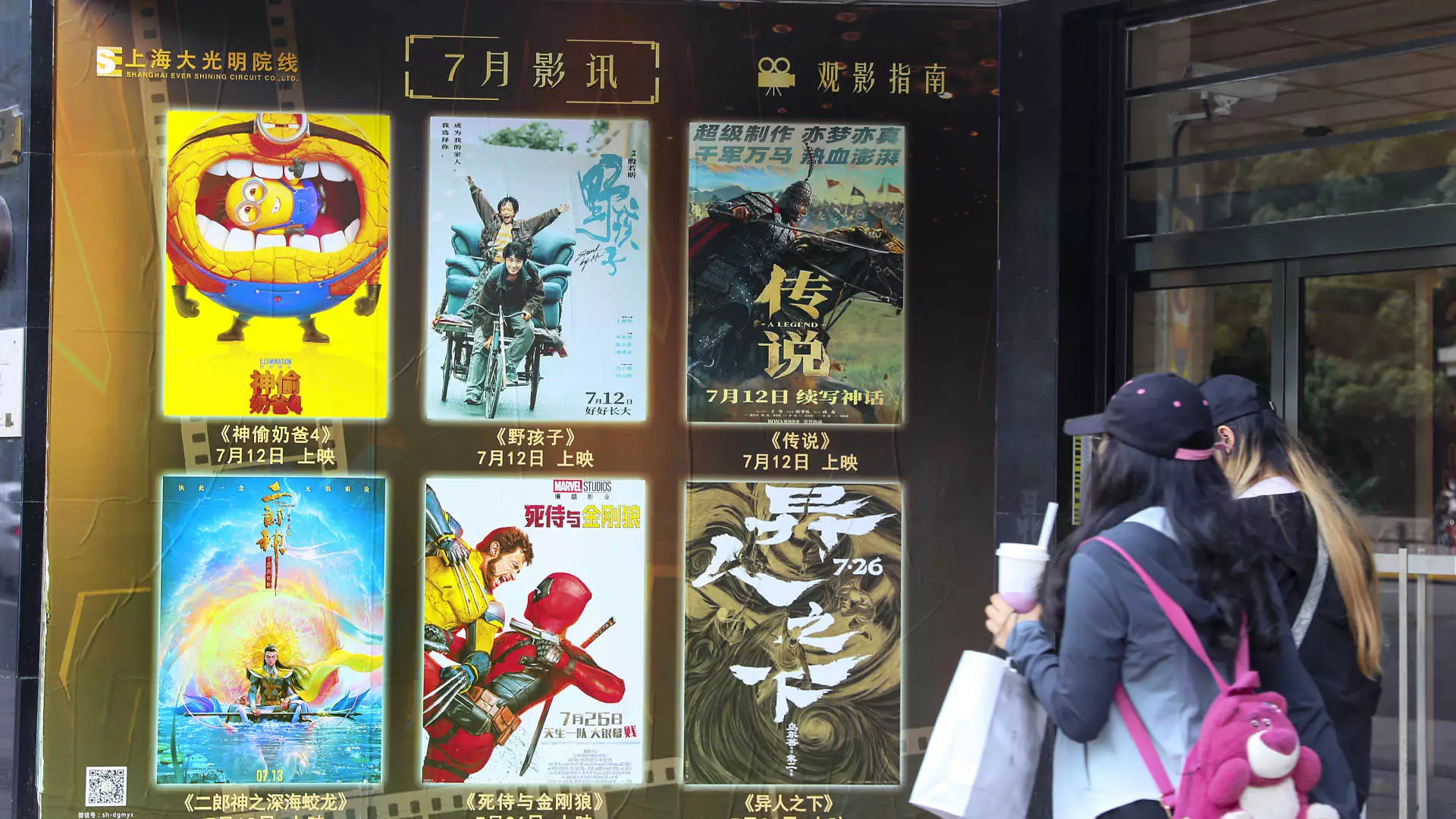With just a flick of a pen, President Donald Trump’s trade war has cast a long shadow over Hollywood, putting an industry built on aspiration and dreams at risk. For years, the Chinese market has been a golden ticket for American studios, offering not just ample ticket sales but a vast audience eager for cinematic experiences. Yet, as tariffs mount and relations cool, the feedback from the box office betrays a troubling truth: Hollywood’s star is losing its luster in the East. The retaliatory restrictions imposed by the Chinese government are a direct arrow to the heart of a multi-billion dollar industry that once thrived on its ability to captivate global audiences.
Corporate Stocks Take a Hit
Companies like Disney and Warner Bros. Discovery have taken notice, with their stocks experiencing significant dips due to volatile trading in response to the tariff changes. While such fluctuations are commonplace in corporate America, the implications here are much graver. These are not just stock prices fluctuating; they represent a broader erosion of confidence in a market that once seemed untouchable. The cinematic narrative we all cherished is unfolding into a business drama filled with uncertainty and dread.
Hollywood’s Growing Irrelevance
During the early 2010s, the allure of the Chinese box office encouraged American studios to tailor their films for broader international reach. But the landscape has shifted dramatically. Despite the initial flourishing of American films in China, a shift is underway as home-grown Chinese productions like “Ne Zha 2” rise to unprecedented heights, raking in massive box office returns rarely matched by their Western counterparts. The emotional connection audience members feel towards their domestic films cannot be overstated. As the world evolves, so do cultural narratives, echoing sentiments of pride and identity that resonate deeply with local audiences.
The Crumbling Economic Foundation
A significant economic factor looming large over Hollywood is the steep drop in ticket sales. The rental rates have become a serious issue, and with the expiration of the U.S.-China Film Agreement, opportunities for American films have dwindled. According to Ann Sarnoff, former CEO and chairwoman of Warner Bros., studios no longer see the Chinese market as a reliable cushion for their profits. Companies that once confidently projected revenue from overseas markets are now revising their expectations downward or excluding them altogether. The stakes are rising, and the fear of insufficient returns can alter production decisions in significant ways, stifling creativity and experimentation.
The Technological Arms Race
The evolution of China’s filmmaking capabilities cannot be ignored. With advanced technology and skilled workforce, local studios are crafting blockbusters that rival Hollywood in both quality and audience interest. The swift ascent of domestic narratives showcases a renaissance in Chinese cinema, one that highlights cultural stories that resonate intimately with the populous. Hollywood’s previous status as the dominant storyteller is being called into question, and it begs the important question: how long can they afford to ignore a country that is not just a market but a rival in storytelling?
The Currency Conundrum
Adding to the chaos, currency fluctuations introduce another layer of complexity to international business dealings. The weakened dollar may offer some short-term benefits for Hollywood in terms of box office returns, but at what cost? As operational costs continue to rise, the balance of profit margins becomes ever more precarious. It’s a cruel trade-off that pits financial sustainability against artistic integrity, leaving filmmakers scrambling to navigate an increasingly volatile economic landscape.
Uncertain Futures
Hollywood finds itself at a crossroads, grappling with the ramifications of a trade war that is not merely economic but also cultural. Uncertainty merchants run rife among studio executives who aren’t sure how deeply these tariffs will cut into their profits or alter their production strategies. As they stand on this precipice, the industry is poised between a past filled with glimmers of hope and a present riddled with shadows of doubt, desperately looking for a way forward in a world that is rapidly changing around them.

